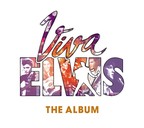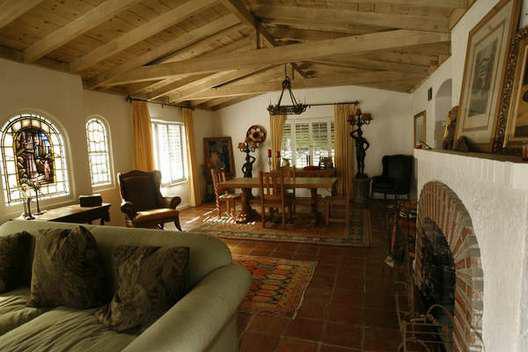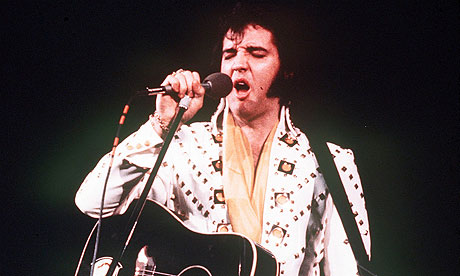INTERNATIONAL MOMENTUM BUILDS AS VIVA ELVIS - THE ALBUM BREAKS INTO THE BILLBOARD 200 -- Viva ELVIS - The Album, a 21st century celebration of Elvis and his music featuring the voice of the King in a whole new soundscape, is gathering worldwide momentum in the wake of its recent release through Legacy Recordings, in cooperation with Elvis Presley Enterprises, Inc. and Viva ELVIS by Cirque du Soleil at ARIA Resort & Casino in Las Vegas. Released stateside on November 9, Viva ELVIS - The Album has debuted in the upper half of the Billboard 200. | |||||||||||||||||||||||||||||||||||||||||||||||||||||||||||||||||||||||||||||||||||||||||
Billboard | |
""It's all inventive and invigorating, offering proof that Presley's music can handle being all shook up" | |
FORBES.COM | |
"'Viva Elvis – the Album' a multi-faceted audio extravaganza creating a larger-than-life musical portrait of Elvis" | |
MSN MUSIC | |
"You've never heard these tunes like this before… ear-popping collages" | |
ASSOCIATED PRESS | |
"A new take on the King"… "'Suspicious Minds' opens with Elvis' soulful, echoing voice and prominent piano notes, then shifts into a guitar introduction that evokes memories of U2's classic anthem 'Bad.' The song has a strong drum and guitar component without losing the sing-along quality of the original." | |
BLOOMBERG NEWS | |
"A radical mix of his hits" | |
BLOGCRITICS | |
"And we're off to the races as Viva ELVIS - The Album turns up the heat and the velocity as it dashes through a representative sampling of The King's mastery of genres from Delta blues, gospel and Southern folk to movie soundtracks and Vegas pop" | |
"You won't be able to help falling in love (with The King) again. Some things were just meant to be!" | |
RECORD COLLECTOR | |
"I loved it. A great mash up of Elvis, early, middle and late in his career. Great fun!" | |
VIRGINIAN- PILOT | |
"Elvis for the iPod age." | |
When working on the music for the Cirque du Soleil production "Viva ELVIS," Van Tourneau spent more than 3,000 hours reviewing countless albums, films, concert recordings, interviews and home recordings of Elvis. More than 17,000 samples of Elvis' songs – the raw material for the show – were made during the process.
Working with tens of thousands of samples of Elvis' voice, Van Tourneau often wove several sequences and sounds into the same songs, sometimes changing details such as the key and tempo. In creating Viva ELVIS - The Album, Van Tourneau was looking to accentuate and boost the emotional charge of the songs with the incorporation of ragga, punk or hip-hop elements into classic recordings. In all cases, however, the goal was to respect and understand the essence of the original recordings.
"I would like to acknowledge all of the incredible composers, musicians and technicians responsible for making this music with Elvis originally," said Erich Van Tourneau. "The album Viva ELVIS would not be what it is today if not for their remarkable contributions."
The postmodern studio masterwork invokes the spirit and essence of Elvis from a contemporary perspective while furthering the revolutionary impulses of Elvis' sound. Viva ELVIS - The Album re-imagines the king's own vocal performances in a broad variety of new musical settings. This new sound echoes Elvis' own versatility and ability to master all music genres, from Delta blues to rockabilly, from raw soul to gospel, from Southern folk to Vegas pop, while incorporating elements of garage rock, punk, urban and hip-hop.
In celebration of all eras of Elvis' musical genius, Viva ELVIS - The Album includes songs from Elvis' rise to fame in the '50s, his movie soundtracks, his triumphant return to the stage in the "'68 Special," and his ground-breaking appearances in Las Vegas.
Viva ELVIS by Cirque du Soleil, a harmonious fusion of dance, acrobatics and live music, opened earlier this year in a specially designed 1,800 seat theater at ARIA Resort & Casino in Las Vegas. A tribute to the life and music of Elvis Presley, Viva ELVIS focuses on the essential humanity of the one superstar whose name will forever be linked with the history of Las Vegas: Elvis Presley. Significant moments in his life – intimate, playful and grandiose – blend with timeless songs that remain as relevant today as when they first hit the top of the charts.
Elvis lives on Viva ELVIS - The Album, a 21st century venue for rock's first and biggest superstar.
Viva ELVIS - The Album - produced and arranged by Erich Van Tourneau
1. (Opening) | (mixed by Robert Meunier & Erich Van Tourneau) | |
2. Blue Suede Shoes | (mixed by Serban Ghenea) | |
3. That's All Right | (mixed by Brendan O'Brien) | |
4. Heartbreak Hotel | (mixed by Brendan O'Brien) | |
5. Love Me Tender | (mixed by Robert Meunier & Erich Van Tourneau) | |
6. King Creole | (mixed by Robert Meunier & Erich Van Tourneau) | |
7. Bossa Nova Baby | (mixed by Serban Ghenea) | |
8. Burning Love | (mixed by Serban Ghenea) | |
9. (Memories) | (mixed by Robert Meunier & Erich Van Tourneau) | |
10. Can't Help Falling In Love | (mixed by Serban Ghenea) | |
11. (You'll Never Walk Alone) (piano interlude) | (mixed by Robert Meunier & Erich Van Tourneau) | |
12. Suspicious Minds | (mixed by Brendan O'Brien) |



 One of the most well-known is Elvis Presley’s Honeymoon Hideaway. Located in Old Las Palmas, the home boasts a jutting prow of living-room windows and lily-pad steps ascending to the front door. Built by the father-son Alexanders—builders of the city’s iconic mid-century homes—the home was first occupied by son Robert Alexander until he, his family and father perished in a 1965 airplane crash.
One of the most well-known is Elvis Presley’s Honeymoon Hideaway. Located in Old Las Palmas, the home boasts a jutting prow of living-room windows and lily-pad steps ascending to the front door. Built by the father-son Alexanders—builders of the city’s iconic mid-century homes—the home was first occupied by son Robert Alexander until he, his family and father perished in a 1965 airplane crash. Not long after, Elvis signed a one-year lease for $21,000, carrying his new bride, Priscilla, over the threshold on May 1, 1967. He puportedly sang The Hawaiian Wedding Song as he did so; daughter Lisa Marie was born exactly nine months later. This was also the venue in which he shot out his TV upon seeing Robert Goulet on the screen.
Not long after, Elvis signed a one-year lease for $21,000, carrying his new bride, Priscilla, over the threshold on May 1, 1967. He puportedly sang The Hawaiian Wedding Song as he did so; daughter Lisa Marie was born exactly nine months later. This was also the venue in which he shot out his TV upon seeing Robert Goulet on the screen. The 5,200 square-foot home has been faithfully restored to its ’60s glory, complete with customized 64-foot curved sofa on which the newlyweds were photographed. Photos of the compelling couple in the home dot the interior.
The 5,200 square-foot home has been faithfully restored to its ’60s glory, complete with customized 64-foot curved sofa on which the newlyweds were photographed. Photos of the compelling couple in the home dot the interior. Lucille Ball and Desi Arnaz’s 1930s hacienda was across the street from the swinging El Mirador Hotel —now Desert Regional Medical Center—and was the first private Palm Springs’ residence to have its very own pool.
Lucille Ball and Desi Arnaz’s 1930s hacienda was across the street from the swinging El Mirador Hotel —now Desert Regional Medical Center—and was the first private Palm Springs’ residence to have its very own pool. Ol' Blue Eyes' Twin Palms Estate is located in the heart of the Old Movie Colony. The 4,500 square-foot home is a spectacular example of mid-century contemporary architecture that has been oft used in commercials, from Coca-Cola to Mercedes Benz.
Ol' Blue Eyes' Twin Palms Estate is located in the heart of the Old Movie Colony. The 4,500 square-foot home is a spectacular example of mid-century contemporary architecture that has been oft used in commercials, from Coca-Cola to Mercedes Benz. Designed in 1947 by legendary architect Stewart Williams for Frank and his first wife, Nancy, the property was named for the pair of towering palm trees above the piano-shaped pool.
Designed in 1947 by legendary architect Stewart Williams for Frank and his first wife, Nancy, the property was named for the pair of towering palm trees above the piano-shaped pool. Perched below Bob Hope’s own iconic John Lautner-designed mushroom home in south Palm Springs sits Howard Hughes' mini estate. The 2,100 square-foot home is multi-layered and offers 220-degree views of the valley below. Other notable owners of the home include Green Acres' Eva Gabor and producer Paul Keyes.
Perched below Bob Hope’s own iconic John Lautner-designed mushroom home in south Palm Springs sits Howard Hughes' mini estate. The 2,100 square-foot home is multi-layered and offers 220-degree views of the valley below. Other notable owners of the home include Green Acres' Eva Gabor and producer Paul Keyes. Located close to Elvis’s honeymoon house, Hawks named his 5,600 square-foot hacienda Casa de Plata (House of Silver). The home is hidden behind high walls in Old Las Palmas and retains many of the original features, including Mexican hacienda-style fireplaces in each of the five bedrooms.
Located close to Elvis’s honeymoon house, Hawks named his 5,600 square-foot hacienda Casa de Plata (House of Silver). The home is hidden behind high walls in Old Las Palmas and retains many of the original features, including Mexican hacienda-style fireplaces in each of the five bedrooms.






